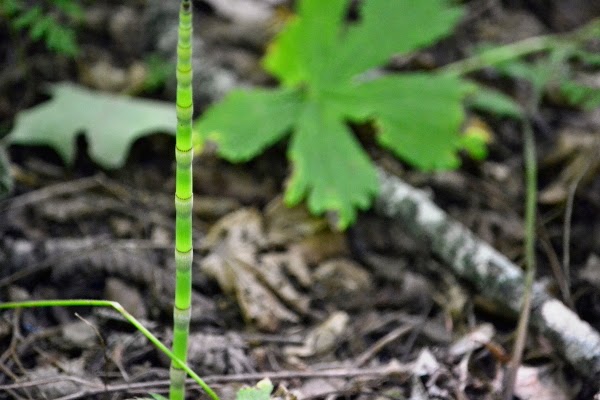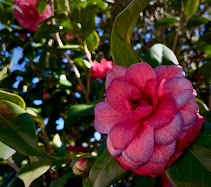The Powers of Flowers
Mid-summer in the forest, the wooded lands, is not a time of variety of color.
It is the in-between time.
The explosions of spring have settled down.
The colors of fall remain hidden.
| |
|
|
In the forest it is green. At times, even a slightly tired green, but it is the sign of life moving on in its day-to-day process. Chlorophyll doing its job.
Out of the vast chemical bath of the Sea, not from the deeps, but from the element rich, light exposed platforms of the continental shelves wandering fingers of green had crept upward along the meanderings of river systems and fringed the gravels of forgotten lakes.
-L. Eiseley
|
Ferns and horsetail, the living fossil, show the primitive, primeval life of the forests that once ruled the earth.
A little while ago about one hundred million years, as the geologist estimates time… flowers were not to be found anywhere on the five continents. Wherever one might have looked, from the poles to the equator, one would have seen only the cold dark monotonous green of a world whose plant life possessed no other color.
-L. Eiseley
| |
Then one comes around a corner, or looks across the creek and colors break forth in the sunshine. I immediately remembered an essay by Loren Eiseley, “How Flowers Changed the World” and I saw its reality portrayed in front of me. Colors, reaching out to the food of the sun’s energy, attracting pollinators and unwitting accomplices to spread the angiosperms (seeds) far and wide. What a miracle, for without it Eiseley reminds us, life as we know it would probably never have appeared.
| |
Somewhere, just a short time before the close of the Age of Reptiles, there occurred a soundless, violent explosion. It lasted millions of years, but it was an explosion, nevertheless. It marked the emergence of the angiosperms the flowering plants. Even the great evolutionist, Charles Darwin, called them "an abominable mystery," because they appeared so suddenly and spread so fast.
Flowers changed the face of the planet. Without them, the world we know even man himself would never have existed. Francis Thompson, the English poet, once wrote that one could not pluck a flower without troubling a star. Intuitively he had sensed like a naturalist the enormous interlinked complexity of life. Today we know that the appearance of the flowers contained also the equally mystifying emergence of man.
-L. Eiseley
| |
The weight of a petal
has changed the face of the world
and made it ours. – L. Eiseley
(Loren Eiseley quotes from "How
Flowers Changed the World" from The Immense Journey, 1957)









No comments:
Post a Comment